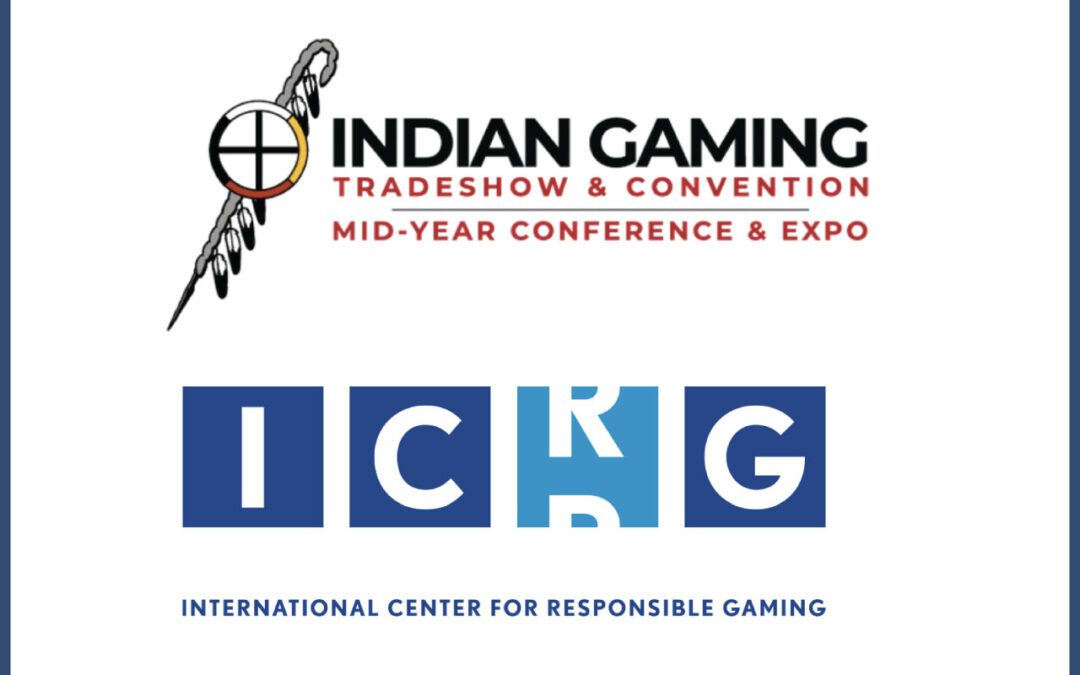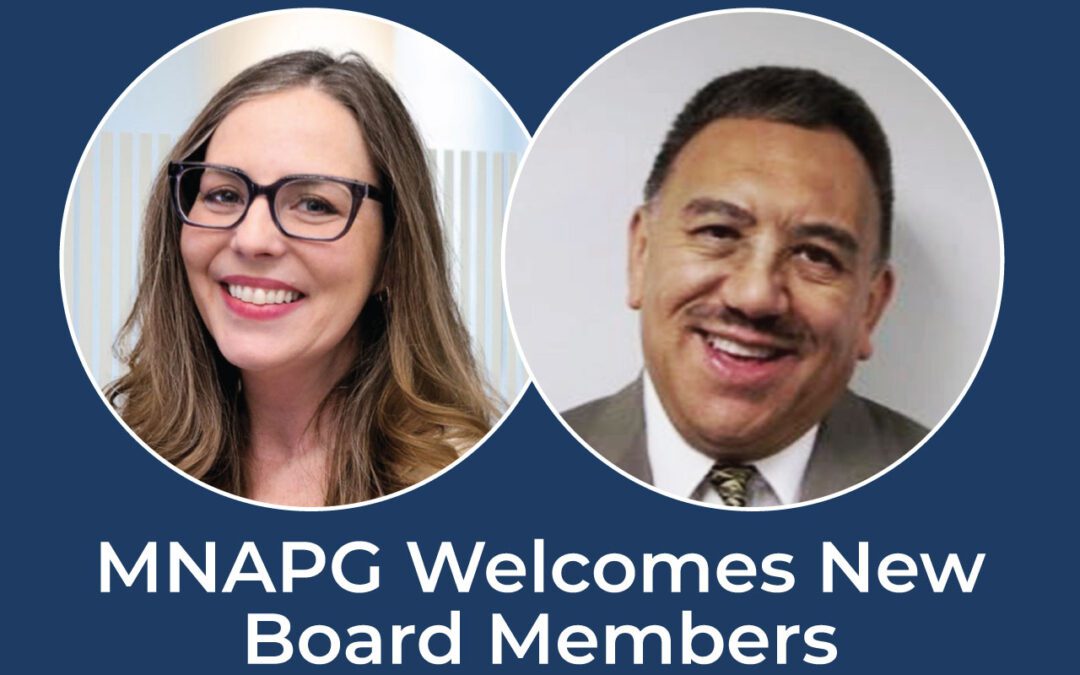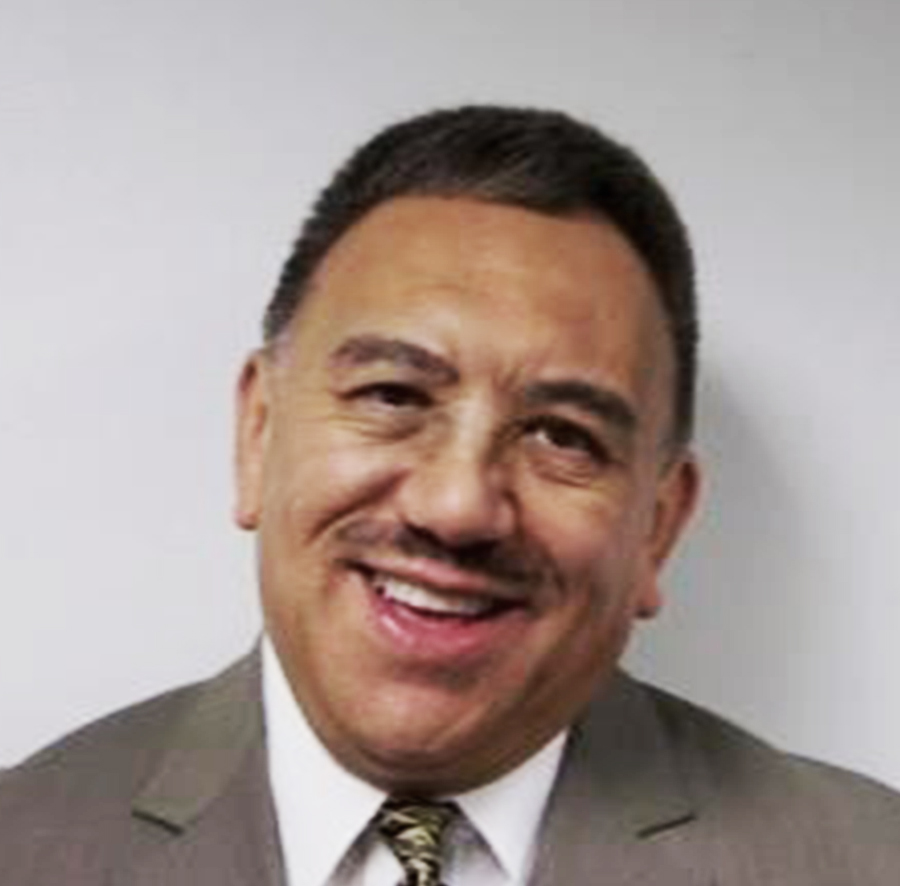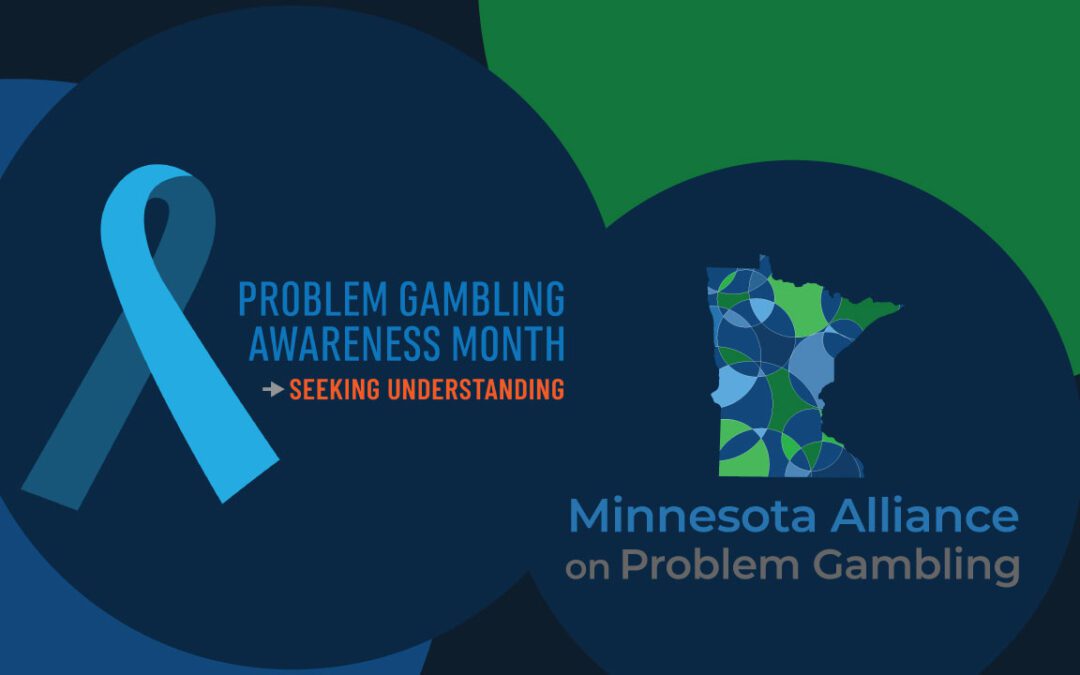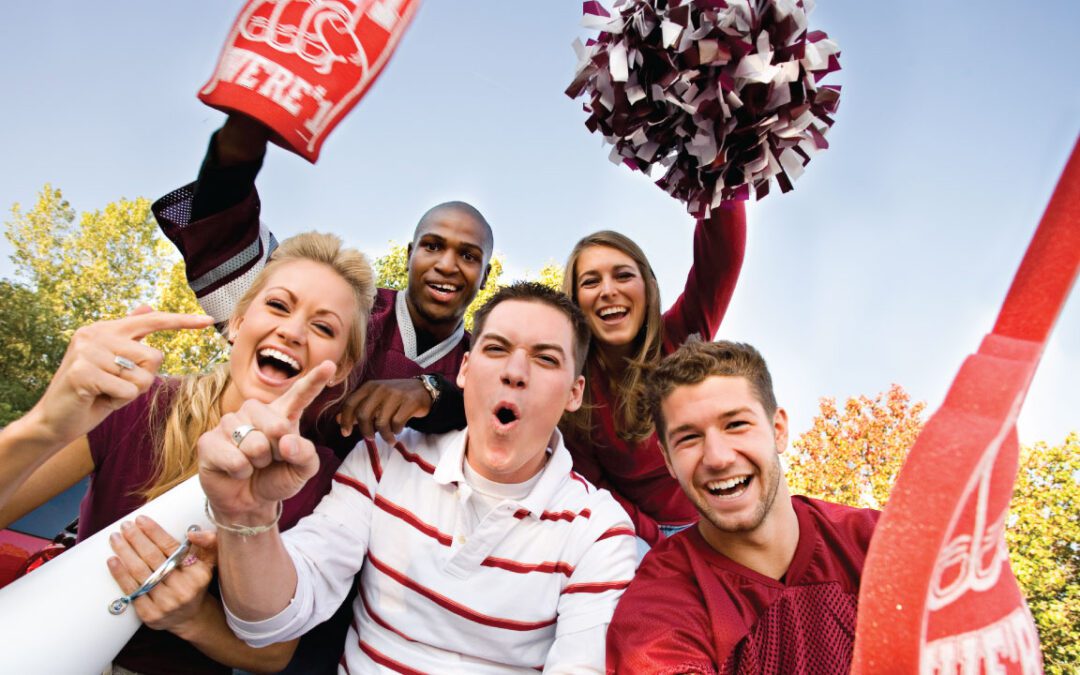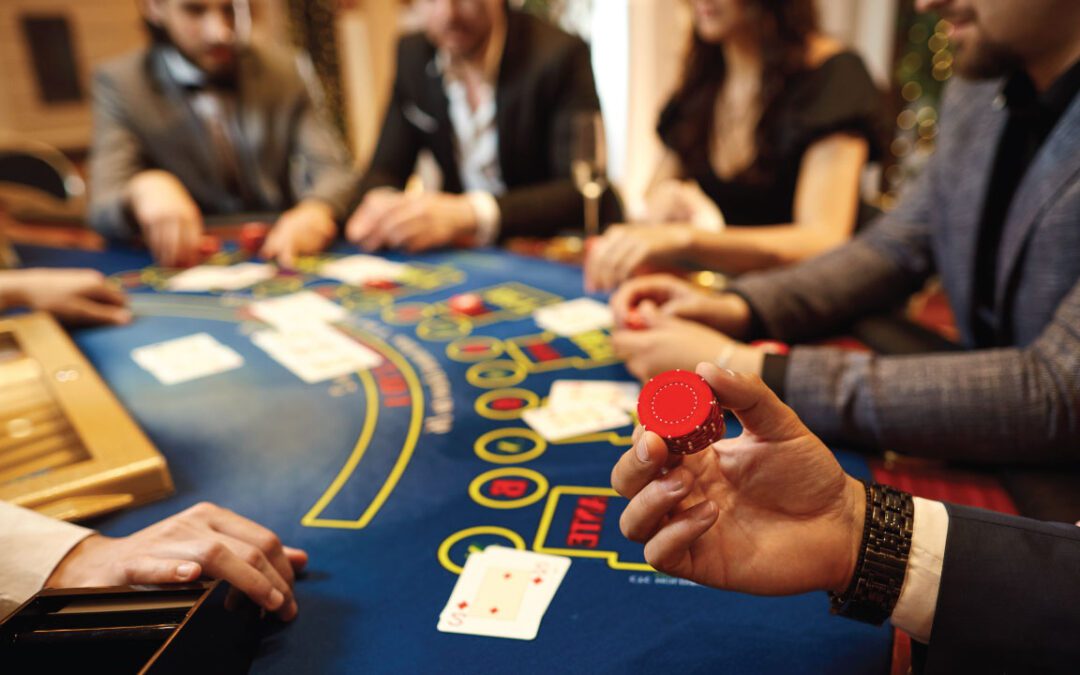
Dec 17, 2025 | ABOUT MNAPG, ADVOCACY, PROFESSIONALS, YOUTH GAMBLING
MNAPG attended two conferences in October: the mid-year Indian Gaming Association (IGA) conference and the International Center for Responsible Gaming (ICRG) conference. Here are some takeaways.
Indian Gaming Association Conference
At the IGA, the focus was on the growing concern about prediction markets and casino sweepstakes—and the impact these unregulated, untaxed platforms could have on tribal revenues. Legalized gambling, whether you agree with it or not, has allowed Minnesota tribal nations to expand and diversify their economies and provide a wide range of services to their communities. These market disrupters are viewed as existential threats to tribal sustainability and independence. (Editor’s note: As of November 5, 2025, the Minnesota Attorney General’s office sent cease-and-desist letters to 14 illegal gambling operators—sports betting and casino sweepstakes.)
The American Gaming Association also recognizes the threats these new platforms pose—not only to gambling revenue but also to consumer protection. Our current federal anti-regulatory environment could significantly change how people engage with gambling. By redefining gambling as a commodity and placing it under the Commodity Futures Trading Commission (CFTC), these platforms may create a stronger illusion of control—skill rather than luck. This illusion is a common fallacy among gamblers, especially sports bettors. Mislabeling gambling products as “trading” blurs the line between investing and gambling, putting consumers at risk. The way these platforms target young adults is particularly troubling. They are designed for continuous, habit-forming engagement, with no guardrails or risk warnings.
The discussions were sobering and, for MNAPG, highlighted yet another area where we need to pay close attention and raise awareness within the community and among policymakers.
International Center for Responsible Gaming Conference
The ICRG conference, a day and a half of research reveals, provided an opportunity to hear firsthand the latest findings in responsible gambling, explore emerging tools and regulatory practices, and discuss the growing integration of responsible gambling principles into the broader gambling landscape. While much work remains, I’m encouraged by the shift among some operators to place greater emphasis on consumer protection. Our advocacy efforts at the national and state levels are having a positive impact, and we need to continue being the thorn in operators’ sides.
One session examined the connection between gambling literacy and financial literacy and the need to evolve both so that users understand how risky behaviors can develop through new mediums like digital finance, investment platforms and social media.
Another session focused on artificial intelligence and emphasized that AI should amplify human insight, not replace it. Advances in AI may eventually enhance early risk detection and enable personalized responsible gambling interventions—but only if we eliminate bias and uphold the highest standards of privacy protection.
Finally, researchers studying youth emphasized the need to create relatable prevention materials and deliver them in the spaces where young people actually spend their time, rather than where we think they should be. They also highlighted the importance of developing prevention programs that account for gender, age and cultural identity.

Sep 5, 2025 | ABOUT MNAPG
Two new board members joined MNAPG in July. Each brings a unique background and perspective to our organization. Northern Light asked them about their experience and what they hope to contribute.
Terra Carbert, Senior Recruiting Manager for Frederick Fox
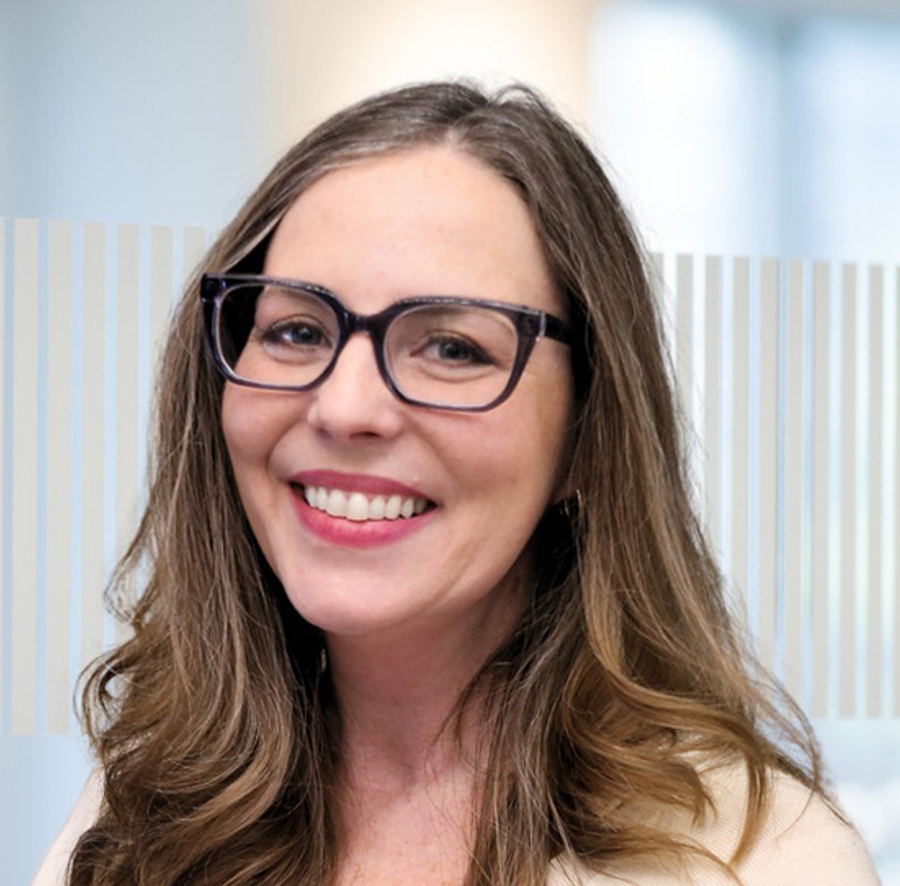
NL: Can you share a little bit about your background?
TC: I was born and raised here in Minnesota. I am a recovering compulsive gambler living in recovery since 2016. In my professional life, I work as a recruiter, a life coach for women in transition and as the host of the Ambitious Addicts podcast. I attained a recovery coaching certification in 2020 to better support others working through recovery.
NL: What prompted you to join the board?
TC: As a person with lived experience in recovery from compulsive gambling, I was looking for a way to make an impact—to create awareness about and advocate for recovery solutions for those affected by gambling. This opportunity aligns with my personal passions and allows me to give back to the community in meaningful ways that can help others.
NL: What do you hope you can contribute to the board and the mission?
TC: I can bring the voice of lived experience, having lived in recovery every single day. Given my experience of being addicted, I have experienced the harm. I hope to contribute a unique perspective, whether that’s to educate the industry, legislators or clinicians working to treat those in recovery while helping MNAPG work towards its vision.
NL: Are there particular areas within problem gambling that are of special interest to you?
TC: For me, it’s all about the voices of women who have experienced gambling harm and normalizing the conversation about gambling being a public health threat. When I look back on my gambling, I wish there could have been an intervention. I want to see a world where the rooms of recovery and solutions are as diverse as the people we encounter at casinos and in the lines to buy lottery tickets, and to elevate the voice of women to help address the seeming bias that only men are affected. And that recovery is possible, as I am a personal testament to this.
NL: What are some of your hobbies and interests?
TC: I enjoy travelling, music—especially karaoke—and rehabbing furniture. I love to do just about anything outside. I also do some volunteering with SciMathMN, a STEM Education non-profit in Minnesota, and try to attend events related to the startup world here in Minnesota. Of course, I also love spending time with family and friends.
Steve Griffiths, General Manager at Jackpot Junction

NL: Can you share a little bit about your background?
SG: My journey in the gaming industry began on the front lines as a dealer in Las Vegas, which gave me valuable insights into the core operations and customer experience, ultimately serving as casino manager at the Golden Nugget Casino. From there, I transitioned to tribal gaming, serving as general manager for several major tribal casinos, including the Tulalip, Muckleshoot and Puyallup casinos. During that time, I also served on the Washington State Council on Problem Gambling, which eventually became the Evergreen Council on Problem Gambling. I played an active role, primarily as treasurer for approximately 15 years, heading up fundraising initiatives and expanding tribal support to address the issue of problem gambling. In total, I’ve spent more than 25 years building and running tribal gaming facilities and working on issues such as problem gambling.
NL: What prompted you to join the board?
SG: I met with Susan (Sheridan Tucker) and we discussed the work I did in Washington and recognized an opportunity to contribute, given my experience in developing problem gambling training programs for tribes in that state. I firmly believe in the importance of operators recognizing their social responsibilities. It’s crucial that gaming operations consider the potential negative impacts on some individuals. As both a human being and a gaming professional, I feel a personal duty to address and balance these concerns.
NL: What do you hope you can contribute to the board and the mission?
SG: As I’ve mentioned, I’ve been involved in a lot of training programs, including setting criteria for both frontline and senior staff. I’d like to help with the development of a “certification” program that tribal and commercial casinos can complete to demonstrate their commitment to meeting certain operating standards—sort of like a Better Business Bureau stamp of approval. Developing such a program aligns strongly with my background and could significantly advance industry standards and enhance MNAPG’s positive impact across Minnesota. I’d also like to obtain more tribal and non-tribal support for MNAPG. Casinos derive most of their benefits from gaming, and I think contributions to organizations like MNAPG would help to address the societal impacts of that activity and would be helpful and important for all involved parties. I am genuinely excited to join the MNAPG board and look forward to contributing to meaningful initiatives that benefit the statewide community.
NL: What are some of your hobbies and interests?
SG: Outside of professional commitments, I greatly enjoy travelling and have been an avid scuba diver for many years, having travelled to locations such as Hawaii, Micronesia and the Caribbean. I enjoy the sights above and below the water and learning about the local cultures. I’ve also recently had knee surgery and am looking forward to hiking and spending more time outdoors again.

Jun 18, 2025 | ABOUT MNAPG
Problem Gambling Awareness Month (PGAM) is a national campaign that takes place every March to increase public awareness of problem gambling and the availability of prevention, treatment and recovery services. It’s organized by the National Council on Problem Gambling (NCPG) in collaboration with state affiliates, healthcare providers and community organizations.
MNAPG communicated these important messages through a series of articles, emails and ads. We’re pleased to report that our 2025 PGAM efforts were the most extensive in our history, reaching more people than ever before. Some metrics highlighting this effort include:
- Total traffic to the MNAPG website was up 68% this past March compared to March 2024.
- There were approximately 75,000 MNAPG website views in March.
- In partnership with the Star Tribune, a four-email campaign resulted in more than 180,000 opens and more than 24,000 clicks.
- A native article in the Star Tribune (a form of advertising that’s designed to blend seamlessly with the content of a website or publication) had 1.3 million impressions (the number of times a piece of content is displayed to a user) and 3,201 clicks.
- A display ad on the Star Tribune website had nearly 3 million impressions and was clicked nearly 4,500 times.
- PGAM-related ads placed on Google Ads had 68,000 impressions and nearly 1,000 clicks.
- An email and ad placed in The Phoenix Spirit produced approximately 15,000 website visits.
- A public service announcement had 20 million impressions and was viewed 8.9 million times.
- MNAPG was featured on MPR News with Angela Davis on March 17.
Beyond these analytics, the important message is that we’re reaching more and more people, and educating them about gambling addiction.

Jun 18, 2025 | ABOUT MNAPG
Emerging adults—those in the 18-29 age group—are at particular risk for developing an addiction to gambling for various reasons. Historically, this population has been challenging to reach for those wanting to communicate prevention and awareness messages.
Recognizing the importance of educating young adults, MNAPG is intensifying its outreach by developing a new webpage tailored to this audience. We are also focusing on three key groups:
- athletes and athletic directors
- campus counselors and student health center staff
- Emerging adults—18-29-year olds
Look for updates on our progress in future issues of Northern Light.

Jun 17, 2025 | ABOUT MNAPG, ADVOCACY
Given their close interaction with patrons, casino employees are in a unique position to spot those exhibiting signs of problem gambling. It follows logically that the better educated casino staff are in identifying those showing signs of harm from gambling, the more assistance they can offer.
Recognizing the importance of having staff trained to spot potentially problematic gambling behavior, the Minnesota Alliance on Problem Gambling (MNAPG) has partnered with SG Global to develop an employee training program. The training is expected to be implemented for casino employees at Canterbury Park and Running Aces initially, with the hope that additional casinos will participate in the future.
The training consists of three 20-minute modules designed to help casino staff identify and respond to signs of gambling-related harm. The program provides a practical framework for recognizing how gambling behaviors can escalate over time.
Drawing from lived experience, the training encourages earlier recognition and response rather than waiting for more extreme behavior to surface. “We show how an individual’s relationship with gambling can change over time, exploring the role of gambling, the emotions attached to their gambling and their current decision making,” says Ben Davies, managing director at SG Global. “Showing how harm can build over time and how an individual’s relationship with gambling can change helps staff better understand when and how to intervene, with an aim to preventing harm.”
The effort represents SG Global’s first training project in the United States. As a result, SG Global and MNAPG have worked closely to adapt the material for an American audience, modifying both the language and the examples to reflect cultural differences.
In the UK, where SG Global originated, conversations about gambling habits are more normalized. “It’s not uncommon in the UK for a cashier to ask a patron, ‘I noticed you’ve gambled more than you usually do, are you sure you want to place this bet?’” says Ben. In the U.S., such direct interactions are less comfortable, and the training aims to help bridge that gap in a respectful and effective way.
Once the training is rolled out, SG Global plans to re-evaluate progress after 3–6 months, making adjustments as needed. Additional modules focused on specific themes may be developed, and there is also interest in extending the program to tribal casinos with customized content, lived experience and imagery.
“We are keen to work with as many people as possible to help increase awareness of gambling harm so that gambling operators can support their customers to play safe in a sustainable and enjoyable manner.” says Ben. “This training is a step toward creating more awareness and promoting more open conversations with those at risk of gambling harm.”

Nov 12, 2024 | ABOUT MNAPG
For the second consecutive year, MNAPG received the Affiliate Newsletter Award for Northern Light, our quarterly newsletter. The award recognizes an “outstanding problem gambling-related newsletter.” Northern Light has earned several national awards since its inception in 2010. The newsletter seeks to educate readers about the latest trends in problem gambling, treatment and prevention, as well as provide updates on the organization’s outreach efforts and highlight stories of hope in recovery.
MNAPG also received the Affiliate People’s Choice Award for our “Jon’s Story” graphic campaign. The award recognizes “an outstanding print problem gambling or responsible gambling-related awareness message.” “Jon’s Story” employed creative graphics to follow the journey of “Jon” from the time he started gaming as a kid to when he developed a gambling problem in college to his ultimately finding treatment and recovery. The attractive, eye-catching graphics convey a serious message in a way that’s attractive to a younger audience.
“We devote considerable time and resources into our communication tools, so we’re thrilled to see our work recognized at a national level,” says Susan Sheridan Tucker, MNAPG executive director. “I am grateful to my team for their contributions in creating these useful resources that help raise the visibility of gambling disorder in Minnesota.”
